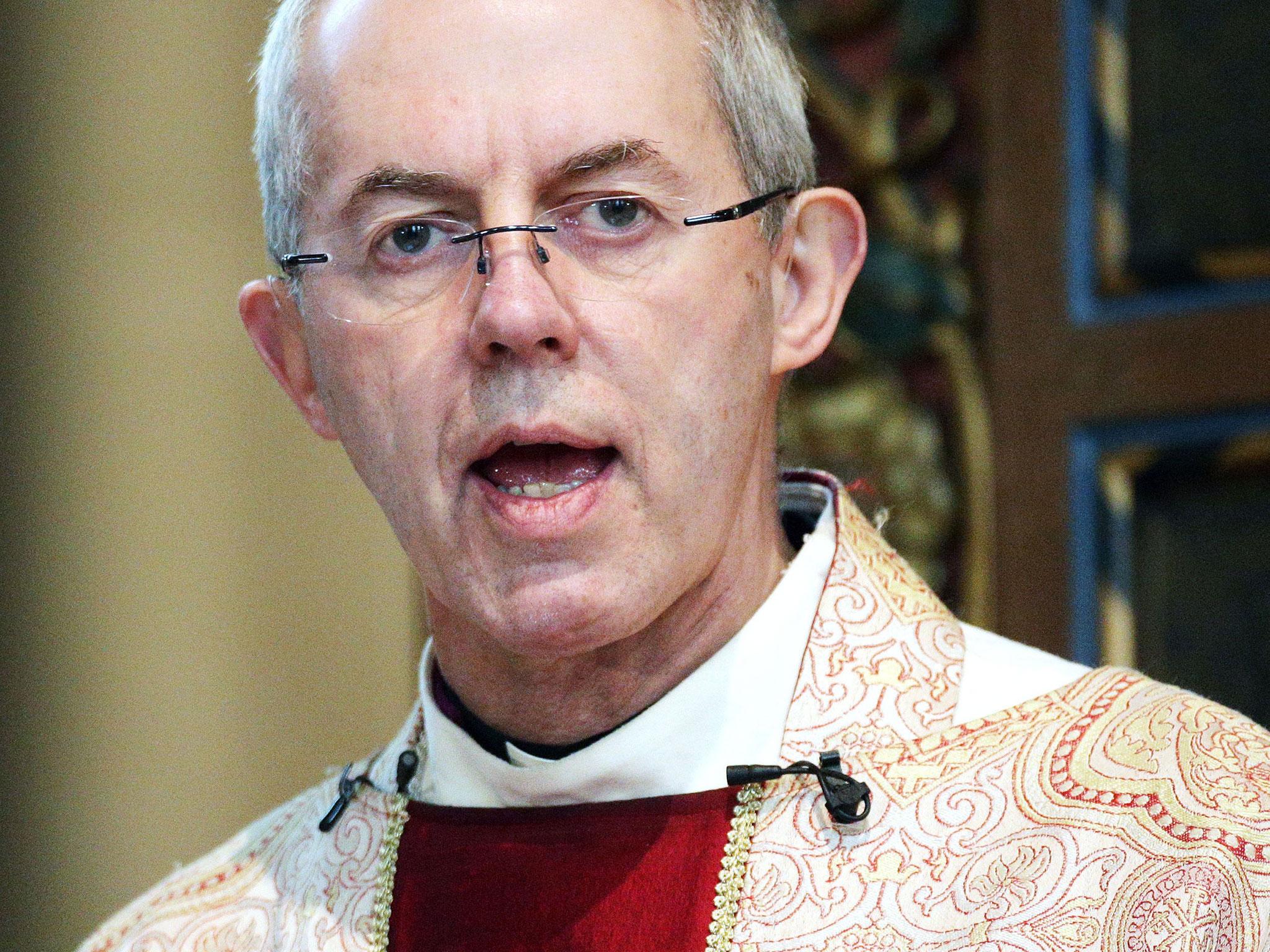The Archbishop of Canterbury’s new ‘Hug a Homophobe’ stance is the least inspiring thing I’ve heard all week
Justin Welby thinks we should ‘embrace’ those who believe being gay is ‘deeply wrong’. But I’m done believing that homophobia is OK in the church because it’s traditional – and since 26 bishops sit in the House of Lords, it’s time to challenge their political commitment to prejudice

Your support helps us to tell the story
From reproductive rights to climate change to Big Tech, The Independent is on the ground when the story is developing. Whether it's investigating the financials of Elon Musk's pro-Trump PAC or producing our latest documentary, 'The A Word', which shines a light on the American women fighting for reproductive rights, we know how important it is to parse out the facts from the messaging.
At such a critical moment in US history, we need reporters on the ground. Your donation allows us to keep sending journalists to speak to both sides of the story.
The Independent is trusted by Americans across the entire political spectrum. And unlike many other quality news outlets, we choose not to lock Americans out of our reporting and analysis with paywalls. We believe quality journalism should be available to everyone, paid for by those who can afford it.
Your support makes all the difference.Recently at Greenbelt Christian festival in Northamptonshire, being interviewed by that lady vicar off Gogglebox (Kate Bottley), the current Archbishop of Canterbury Justin Welby was quizzed a little on the church's stance on gay unions. Specifically, he was asked by an audience member about to enter into a civil partnership when the day would come that unions such as theirs would have the blessing of the church.
Speaking with his customary candour, Welby admitted that he couldn't "see the road ahead", and of the organisation's current stance he simply said, "We just look odd.” He went on to discuss an "incredible clash that is so important to so many people and goes to the heart of the identity of so many people", saying we "have to find a way to love and embrace everyone who loves Jesus Christ", including those particularly lovely people who believe that same-sex relationships are “deeply, deeply wrong”.
That sounds lovely, doesn't it? We can all love each other and everything will be hunky-dory. To me, however, it sounds idealistic to the point of ridiculousness. On the one hand you have us – gay people – who have always existed, and will continue to exist. And on the other hand, you have people for whom homophobia and its expression form a fundamental part of their belief system. In my view, no amount of embracing is going to have the effect of moving either party.
Discussions such as this are often based on the outrageous idea that homophobia is “traditional” for certain groups of people and therefore important for their “moral compass”. This always feels rather dubious to me – after all, a religious terrorist will act based upon what their moral compass dictates; surely, then, personal moral compasses should sometimes be challenged? Just because a homophobe isn't going to the extent of actually throwing me off a building or hanging me from a crane doesn't mean that there is any less value in confronting his or her beliefs. Homophobia has, after all, led to those actions elsewhere.
Why, you may well ask, should we care what the stance of the Church is? Why not let them fight it out amongst themselves? Much though turning the other cheek, if you'll pardon the reference, might seem the best course of action, we shouldn't forget that the Church of England today continues to have a law-making role in the United Kingdom – 26 bishops (including the two Archbishops) sit in the House of Lords, as the 'Lords Spiritual'. What this organisation says and does really matters, and has a real impact.
Let’s not forget, as well, that there are vast swathes of the population who are "passive" Christians. They've never been to church, or they rarely go, but see it as a morally "good" thing to do – this is largely why we’re not a committedly churchgoing country but our last census showed 59 per cent of UK residents describe themselves as Christian. I imagine what the Church of England says holds some sway with them as well.
Welby says he "can't see the road ahead", but I challenge him: why not lay it? The Church of England is the only organisation remaining in the UK for which the right to discriminate against people on the grounds of sexual orientation is enshrined in law. Some clarity and definition of message from figures such as Welby could be just what we need to begin difficult and complicated discussions that should lead to more openness and equality. Until he is able to express his views on discrimination in areas such as marriage faced by gay people when dealing with the church (or indeed, employed by the church), nothing will change. He cannot, and should not, stand idly by while bad deeds are done by people in his name.
Join our commenting forum
Join thought-provoking conversations, follow other Independent readers and see their replies
Comments